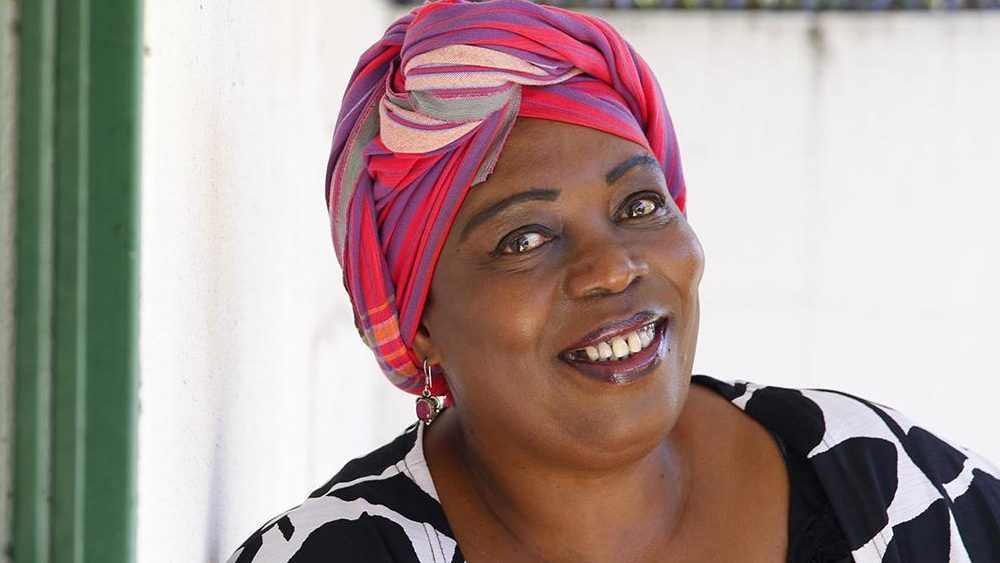
Nozizwe Madlala-Routledge is a Quaker South African politician and activist. She is currently in Philadelphia as the Friend in Residence at Haverford College. In 2008, she received an honorary degree from Haverford. She has served as South Africa’s deputy minister of defense and of health, during which time she challenged the denial of the HIV and AIDS crisis in her home country and deputy speaker of the National Assembly. She is also the founder and Executive Director of Embrace Dignity, a nonprofit campaigning for legal reform to abolish the exploitative system of prostitution and support women wanting to leave the sex industry.
Here is the first part of our conversation with her about Quakerism and experience with change and conflict
The PYM Community and Haverford College and Haverford Meeting feel lucky to have you visiting. You are giving several talks in the community, including one on May 28th at Friends Center. These talks are great opportunities to learn about your life as a Quaker and your work in South Africa’s nation-building, but we are also curious about how this time in the United States feels for you spiritually. What are you noticing?
“My time at Haverford College has focused on teaching a semester course on transitions to peace after violent conflict. I draw from the South African peaceful transition from Apartheid and colonialism as an example.
I believe the South African story provides a case study demonstrating the power of resilience and united action as a way to overcome adversity. I have been sharing the story to inspire others and to hear their views. I am inspired by the diversity of programs at Haverford College.
I have also been engaging with Quakers at Haverford, sharing and learning. This has been extremely valuable and stimulating. Even though we come from different parts of the world, we face some of the same problems.”
You have known much change and conflict in your life, and even been imprisoned for your views. What ideas or lessons would you most want to share with people here?
“The struggle to end apartheid was a protracted one. What sustains us was the knowledge that it would end one day and we would be free.
We had a slogan: “Freedom in our lifetime!” We sang struggle songs. We marched. We learned to be optimistic and to believe in the inevitability of change. Our other slogan was “Amandla. All power to the people.” This drove our determination and the knowledge that we were on the right side of history. We knew that the individual and collective action would create sufficient momentum for change.
When I was in solitary confinement I held on to those beliefs. I looked up to those who had gone before me and drew strength and inspiration. I did not have the things we take for granted, like pen and paper. I was not allowed anything to read but the bible. I learned to tell the time by looking at the sky and the light patterns on the walls in the exercise yard, where they took me for half an hour every day.
I learned the importance of routine and exercise. I used what little color I could find to brighten my day, whether it was a small plant growing through the cracks on the concrete wall or an ant picking up crumbs from the floor.
I learned to chase away feelings of sadness and despair by singing and imagining the joy of being reunited with my family and friends. I recited poetry and I did mental exercises to keep my brain alive. I managed to convince the guard to bring me crossword puzzles that she tore off from magazines and sneaked into my cell.
These were some of the strategies I drew on for survival and to pass the time. On the day I was released it rained. The feeling was great, of rain falling on my head.”
What have you noticed about Quakerism in the year 2020? How has faith changed? Or stayed the same?
“Quakers have a proud history of social activism for ending injustice. Coming to Philadelphia in 2020 gives me a great opportunity to explore that history and to assess our role now as we face new challenges.
Quaker foundations and values remain but new and old global crises stress the need to continue to let our actions speak. Quakers remain an important force for achieving world peace, economic and climate justice.”
Are there any surprises to your visit so far? You’ve been here a month, and teaching for three weeks. Any takeaways?
“It is wonderful to be in a place rich in Quaker history and where Quaker values permeate academic and social life. I find the Honor Code that guides academic life very fascinating. Haverford College is a beautiful place with great resources for academic excellence and social engagement.
I have also been following the political debates as the US prepares for the presidential elections and I am concerned about what I see as a crisis of leadership where those with money are able to subvert democracy. This leaves ordinary citizens confused and frustrated and may result in apathy where they no longer trust the democratic processes to deliver a leader that would respond appropriately to the present crises. This is a global concern especially at this time when world leaders need to act together for the greater common good.”
We agree, it’s a global concern! Thank you Nozizwe, we are grateful to have you here.
Read part 2 of this interview with Nozizwe
To connect with Nozizwe through Haverford College contact Walter Sullivan, Director of Quaker Affairs.